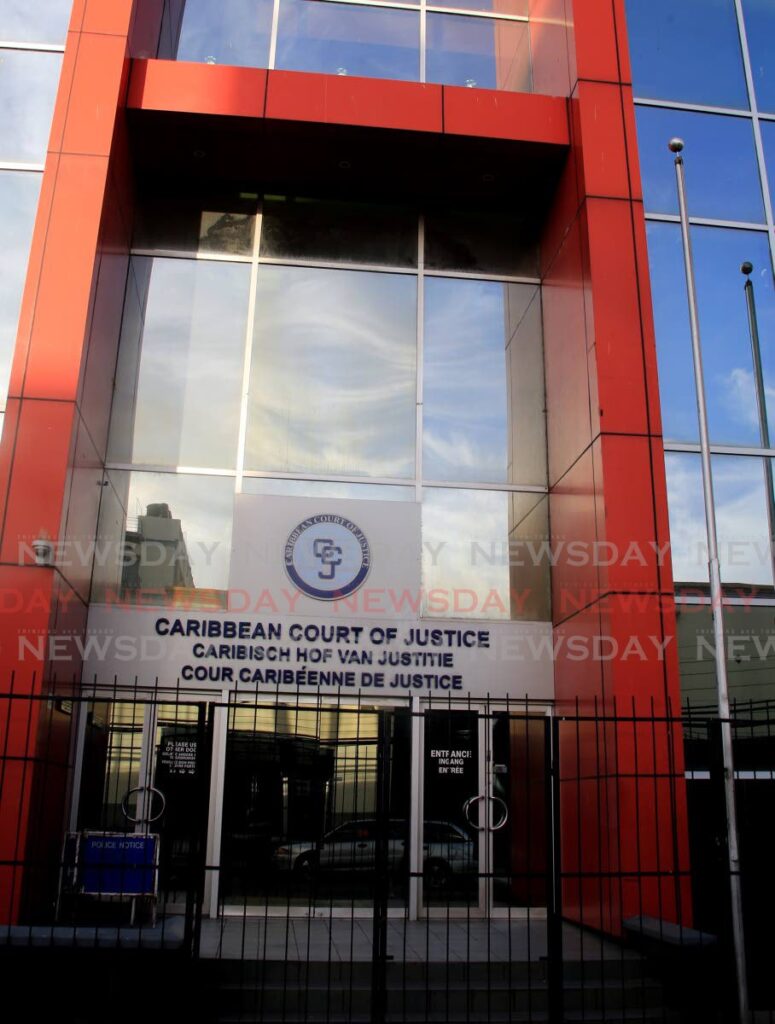Caribbean Court of Justice driving regional integration, says political scientist

Since the inception of the Caribbean Court of Justice (CCJ), the appellate court has heard 232 cases of various types from the four countries, Dominica, Barbados, Guyana, and Belize, and 33 cases had been heard in the original jurisdiction. Political scientist Dr Indira Rampersad said the court was well poised to drive the regional integration process.
Speaking during a virtual presentation on The Caribbean Court of Justice and Regional Integration Confirmation for the Sir Arthur Lewis Institute of Social and Economic Studies, St Augustine, Spotlight Series on Friday, Rampersad said, based on her research, the CCJ judgments showed a depth of research and a lack of bias, despite concerns to the contrary expressed by many in the Caribbean.
“The CCJ has indicated its profound appreciation of the principles of fairness, transparency, integrity, and proportionality, both procedurally and substantively, ideals which it insists should be upheld by all member states. The CCJ has demonstrated that it is a supranational (having power or influence that transcends national boundaries or governments) legal institution with compulsory and exclusive jurisdiction which can act independently, not only of public opinion and governments, but also of the Privy Council.
“The volume of cases emanating from this jurisdiction, and the principles and norms which the court disseminates would reverberate to impact national, regional, and international jurisprudence. These courts are already citing the CCJ’s decisions, even while the Caribbean citizenry seems disinclined to adopt the court. The reason for this somewhat irrational stance has yet to be explored.”
She said the CCJ has heard several cases on political issues ranging from the right to vote of Commonwealth citizens in Barbados to whether a fixed-term executive president can secure a third term in Guyana. She said the seven judges currently on the bench sought to uphold the ideals of good governance, sovereignty, democracy, consultation, participation, consensualism, openness, transparency, respect for fundamental human rights, social justice, fairness, and the rule of law.
Rampersad said some of the areas in which the CCJ had developed new jurisprudence (theory and philosophy of law) were access to justice through land matters, reaching the underserved through hearing civil appeals which allowed ordinary people to benefit from the court, engendering Caribbean cultural norms, building a hybrid legal tradition, striving for constitutional constituency by restricting savings law clauses, separations of power, a broad spectrum right to property, a liberal and purposive approach to constitutional interpretation, cementing regional norms with respect to fundamental human rights, rejecting endemic delay in taking cases to court as part of a collective justice.
She said the critical issues addressed by the CCJ reflect a concerted effort by the court to bring the disparate Caribbean Single Market Economy (CSME) states together by promoting regional judicial norms and values rooted in Caribbean traditions, for both economic and non-economic integration regional integration and the new regionalism. She said in the original jurisdiction, this relates to Revised Treaty of Chaguaramas provisions of functional co-operation.
She said the CCJ has employed a liberal and purposive approach to interpreting Caribbean constitutions using both intrinsic and extrinsic aids to interpretation.
Rampersad said there are several ways in which the CCJ differed from the Privy Council. She said the member states must take their disputes to the CCJ and must comply with its decisions, which somewhat forces another party to the CCJ, which departs from customary international law where the jurisdiction of an international court requires the consent of both parties. She said member states which become party to the Revised Treaty of Chaguaramas automatically consent to the jurisdiction of the CCJ. Another difference is that the CCJ’s judgments can overrule precedents set in other courts, as the CCJ does not bind itself to Privy Council decisions, but only its own.
She said the CCJ determines the standard of proof required of the applicants seeking special leave in a matter, had authority to decide on the application of the intervener in a case, and parties under its jurisdiction must show 100 per cent compliance with its decisions, including payment of damages by parties.
“By not being obliged to follow the precedents of other courts such as the Privy Council, the CCJ is afforded tremendous flexibility in interpreting the Revised Treaty of Chaguaramas and the application of the law to achieve its goal of fostering a Caribbean jurisprudence.”
Last week, Attorney General Reginald Armour SC speaking in the Senate on a private motion filed by Independent Senator Anthony Vieira said it was his intention to get the Opposition's support to make the CCJ this country's final appellate court.


Comments
"Caribbean Court of Justice driving regional integration, says political scientist"